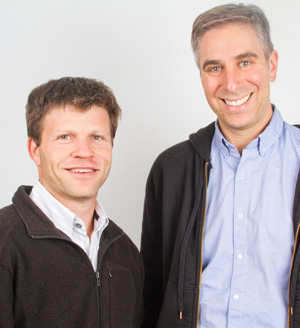Can Yerdle redefine consumerism?


Some day, the word Yerdle may morph into a verb. You might mention to a friend that you need to buy a saw or some other hand tool for a house project. "Well," she would reply, "You should just Yerdle it."
Yerdle launched today, Black Friday, in an effort to kill retailing. Sort of. Yerdle would like to change the very nature of retailing and the ways individuals think about how, where and why they acquire things. It provides a web-based platform for friends to loan or give away things they've been holding onto but no longer use. The Yerdle website and mobile applications are formally launching today –- timed symbolically to thumb its nose at the Black Friday buying spree.
Yerdle is the brainchild of Adam Werbach, chairman of consulting and communications firm Saatchi & Saatchi S. (as well as a former 23-year-old president of the Sierra Club), and Andy Ruben, formerly the chief sustainability officer at Walmart.
The idea struck pay dirt with co-founder Andy Ruben last fall, at his kid's soccer game. "My [then] 5-year-old daughter was starting soccer. We bought shin guards online. As I sat at her first game and watched the field full of 5-year-olds and the adjacent field full of older girls who had likely outgrown their shin guards, it occurred to me how insane the whole model is. I am fairly certain the shin guards we bought new were sitting in my neighbor's garage, from a year earlier -- and my neighbors would have loved to have seen them used again."
Bill McDonough, the architect and designer who, with Michael Braungart, launched the Cradle to Cradle product design and lifecycle system, says Yerdle recasts the notion of what a consumer is and is not. "How do you consume a baby carriage, or a crock pot, a polyester fleece? You can't. You're a customer of these things and you want the service they provide."

Until, that is, you no longer require their services. At that point, the thing most of us do is cast them off…often to a landfill. Indeed, that is the concept behind the planned obsolescence of consumer products that environmentalists have long railed against. That said, what other choice do we have when we literally grow out of our needs for things, like a baby carriage? Craigslist is one option. Yerdle, now, is another. Instead of giving them to strangers, maybe giving things we no longer need to our friends, or friends of friends, will feel safer and more gratifying.
By how, you are likely wondering, how will Yerdle make money? Down the road -- three to six months, says Werbach -- Yerdle will add a commerce tool, so that individuals who can't find a give-away or sharable version of the thing they want will instead be able to purchase it from someone outside his or her immediate circle of friends. Yerdle will take a small transaction fee, which is how it will keep its lights on. Another revenue stream will be in the form of a delivery service, helping get goods from the seller/giver to the buyer/taker.
How pricing will be set, and whether goods will be offered through auctions or set prices are all to be determined, says Ruben, noting that the company is initially focusing on growing friend networks and the free component of the market place. "I would say as a retail concept that simplicity is a rule for us," he says. That is, the process of posting goods for sale should be as easy as posting them for free.
Yerdle will likely benefit from Ruben's background in the Big Box retail world. "I see the commerce part as how it'll sustain itself," he says. "It's about scaling the idea. Adam and I have been in business and non-business [non-profit] environments. There is so much more scale in business."
There are currently 1,500 beta users on Yerdle.com, all based in the San Francisco Bay Area. The average Yerdle member has his or her pick of 500 items -- surfboards, casseroles, blenders, croquet sets, etc., etc. -- that are available either for a loan or straight-up acquisition, for zero dollars. "They have a rate of interaction of 40 percent, meaning that many have posted something or gotten something from the site," says Werbach. In the social web world, that's a "stellar" rate, he adds.
Helping to ensure that Yerdle finds fertile ground through integration with social media is the company's VP of engineering Carl Tashian, who developed the system architecture behind the carsharing service Zipcar.
Half of Yerdle's recruitment is coming through exposure on Facebook –- in the form of links that friends post there, regarding something they're seeking or offering on Yerdle. The other half is coming to and joining the site directly, often through a friend's recommendation.
New Yerdle communities will be cropping up around the country, says Werbach, but the company is taking a measured approach to growing the network. For a community to form in a new city or town, those early adopters have to have, collectively, at least 50 items that they're interesting in offering. "If people join and don't have 50 items available to them, we ask them to wait until enough of their friends have joined. No one wants an empty store and we want to maintain a high quality experience," he says.
Specifically, the company's mission is to reduce 20 percent of the things people buy, by making used versions easy to access. Yerdle sounds like the love-child of Facebook and Craigslist. Ruben acknowledges that, indeed, Craig Newmark blazed an important trail: "We love Craigslist. It has done an incredible amount to change the way think about each other."
This post was originally published on Smartplanet.com

